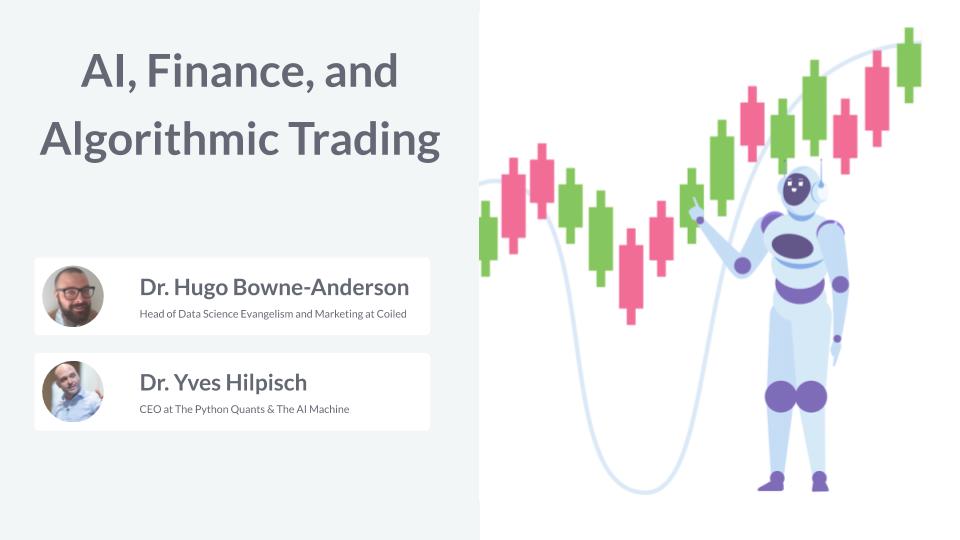Haut-parleurs


Dr. Yves Hilpisch
CEO at The Python Quants & The AI Machine
Formation de 2 personnes ou plus ?
Donnez à votre équipe l’accès à la bibliothèque DataCamp complète, avec des rapports centralisés, des missions, des projets et bien plus encoreConnexe
webinar
Deep Learning in Finance
Get an insider’s account of deep learning in finance.webinar
Artificial Intelligence in Finance: An Introduction in Python
Learn how artificial intelligence is taking over the finance industry.webinar
Machine Learning for Investment Finance
Discover the common use cases for machine learning in investment finance.webinar
Scaling AI Adoption in Financial Services
Explore regulatory AI initiatives in financial services and how to overcome themwebinar
How AI Can Improve Your Data Strategy
Find out how AI, ML, and data science can inform your data strategy.webinar
The Future of Data Science in Insurance
Expert webinar with Regional Chief Data and Analytics Officer at Allianz BeneluxJoin 5000+ companies and 80% of the Fortune 1000 who use DataCamp to upskill their teams.
Loved by thousands of companies
